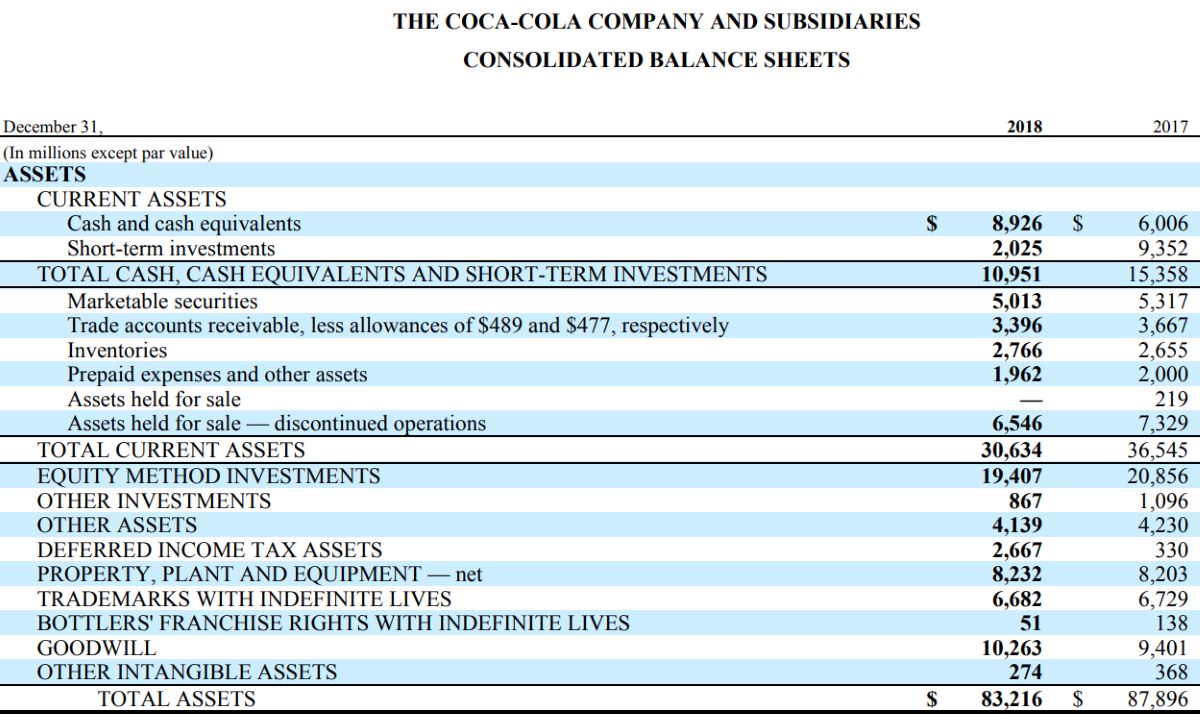

Finance
How Can A COTA Assess Money Management Skills?
Published: February 28, 2024
Learn how a certified occupational therapy assistant (COTA) evaluates financial management abilities. Discover the essential role of COTAs in assessing finance skills.
(Many of the links in this article redirect to a specific reviewed product. Your purchase of these products through affiliate links helps to generate commission for LiveWell, at no extra cost. Learn more)
Table of Contents
Introduction
Understanding the Impact of Money Management Skills Assessment
Money management skills are crucial for individuals to navigate through various aspects of their lives. From budgeting and saving to making informed financial decisions, these skills play a pivotal role in fostering independence and ensuring a secure financial future. As occupational therapists, it is essential to recognize the significance of assessing an individual's money management abilities, as this evaluation can greatly impact their overall well-being and quality of life.
Assessing money management skills goes beyond the realm of financial transactions; it encompasses an individual's cognitive, physical, and emotional capabilities. A comprehensive assessment not only sheds light on an individual's financial acumen but also provides valuable insights into their executive functioning, organizational skills, and overall independence. This holistic approach enables occupational therapists to tailor interventions that address specific challenges and empower individuals to effectively manage their financial responsibilities.
In this article, we will delve into the intricacies of money management skills assessment and explore the pivotal role of Certified Occupational Therapy Assistants (COTAs) in this process. By examining the importance of money management skills, understanding the role of COTAs in assessing these skills, and exploring various assessment tools and techniques, we aim to highlight the profound impact of comprehensive money management evaluations on individuals' lives. Through real-life case studies, we will illustrate the practical application of money management assessments and demonstrate how these evaluations can drive personalized interventions and foster meaningful outcomes. Let's embark on a journey to unravel the profound significance of money management skills assessment and its transformative potential in enhancing individuals' overall well-being and independence.
The Significance of Money Management Skills
Effective money management skills are fundamental to an individual’s financial stability and overall well-being. These skills empower individuals to make informed decisions, plan for the future, and navigate financial challenges with confidence. By cultivating strong money management abilities, individuals can mitigate financial stress, build a secure financial foundation, and work towards achieving their long-term goals.
One of the key reasons why money management skills hold immense importance is their direct impact on an individual’s independence and quality of life. The ability to budget effectively, prioritize expenses, and save prudently contributes to a sense of control over one’s financial circumstances. This, in turn, fosters independence and reduces the risk of financial dependency on external support systems.
Moreover, proficient money management skills are essential for promoting financial security and resilience. Individuals who possess sound financial acumen are better equipped to weather unexpected expenses, cope with economic fluctuations, and plan for retirement. These skills serve as a protective barrier against financial hardships and empower individuals to proactively manage their financial well-being.
Furthermore, money management skills play a pivotal role in enhancing mental and emotional well-being. Effective financial planning and management alleviate the anxiety and stress associated with financial uncertainty. By instilling a sense of financial control and preparedness, individuals can experience improved mental health and overall quality of life.
From a broader societal perspective, proficient money management skills contribute to economic stability and responsible financial behavior. Individuals who demonstrate strong money management abilities are less likely to engage in risky financial practices, thereby contributing to the overall stability of financial systems and communities.
As occupational therapy professionals, recognizing the profound impact of money management skills on individuals’ lives is paramount. By understanding the significance of these skills, Certified Occupational Therapy Assistants (COTAs) can effectively assess and address clients’ financial management needs, ultimately promoting independence, resilience, and holistic well-being.
The Vital Role of a COTA in Assessing Money Management Skills
As integral members of the healthcare team, Certified Occupational Therapy Assistants (COTAs) play a crucial role in assessing individuals’ money management skills and addressing potential challenges in this domain. COTAs are well-positioned to conduct comprehensive evaluations that encompass not only financial aptitude but also the cognitive, physical, and emotional factors that influence an individual’s ability to manage money effectively.
One of the primary responsibilities of COTAs in assessing money management skills is to conduct client-centered evaluations that consider the unique needs, goals, and challenges of each individual. By employing a client-centered approach, COTAs can gain a deep understanding of the factors influencing an individual’s financial management abilities, including cognitive impairments, physical limitations, and emotional barriers.
Furthermore, COTAs utilize their expertise in activity analysis and environmental assessments to evaluate how an individual interacts with their financial environment. This includes assessing the individual’s ability to comprehend financial information, make informed financial decisions, and navigate financial tools and resources effectively.
Moreover, COTAs are adept at identifying and addressing barriers that hinder an individual’s money management skills. Whether it involves challenges in organization, time management, executive functioning, or fine motor skills, COTAs are equipped to recognize the intricate interplay of these factors and their impact on financial independence.
Additionally, COTAs collaborate closely with occupational therapists to integrate money management assessments into holistic treatment plans. By aligning financial management goals with broader rehabilitation objectives, COTAs ensure that individuals receive comprehensive support that addresses their financial needs within the context of their overall well-being.
By leveraging their expertise in functional assessments and intervention planning, COTAs can implement targeted interventions to enhance clients’ money management skills. These interventions may encompass strategies to improve executive functioning, enhance organizational skills, and utilize adaptive tools and technologies that facilitate independent financial management.
Ultimately, the role of a COTA in assessing money management skills extends beyond evaluating financial literacy; it encompasses a holistic understanding of an individual’s abilities, challenges, and aspirations in managing their financial resources. By embracing this multifaceted approach, COTAs can make a meaningful impact on individuals’ lives, empowering them to navigate financial responsibilities with confidence and independence.
Exploring Assessment Tools and Techniques
When evaluating an individual’s money management skills, Certified Occupational Therapy Assistants (COTAs) utilize a range of assessment tools and techniques to gain comprehensive insights and tailor interventions to meet the unique needs of each client.
One of the primary assessment tools employed by COTAs is the Money Management Questionnaire, which encompasses a series of structured questions designed to evaluate an individual’s financial knowledge, decision-making abilities, and budgeting skills. This questionnaire provides valuable information about an individual’s understanding of financial concepts, their capacity to prioritize expenses, and their proficiency in managing financial resources effectively.
Furthermore, COTAs utilize functional assessments to evaluate an individual’s ability to perform money management tasks within their daily routines. These assessments may involve observing the individual as they engage in activities such as creating a budget, paying bills, managing financial documents, and utilizing digital banking platforms. By assessing the individual’s performance in real-life financial activities, COTAs can identify specific areas of strength and areas that require targeted intervention.
In addition to standardized assessments, COTAs employ cognitive assessments to evaluate an individual’s executive functioning skills, memory, attention, and decision-making processes as they relate to financial management. These assessments provide valuable insights into the cognitive factors that influence an individual’s ability to manage money effectively, thereby guiding the development of tailored interventions that address cognitive barriers to financial independence.
Moreover, environmental assessments play a crucial role in evaluating the physical and environmental factors that impact an individual’s money management skills. COTAs assess the individual’s living environment, including the organization of financial documents, accessibility of financial tools, and the individual’s ability to navigate their financial surroundings independently. This assessment facilitates the identification of environmental modifications and adaptive strategies that can enhance the individual’s financial independence.
When employing assessment techniques, COTAs prioritize a collaborative and client-centered approach, engaging individuals in the assessment process to gain a deeper understanding of their perspectives, goals, and challenges related to money management. This collaborative approach fosters a sense of empowerment and ensures that the assessment process aligns with the individual’s unique needs and aspirations.
By leveraging a diverse array of assessment tools and techniques, COTAs can conduct thorough evaluations that encompass financial literacy, functional abilities, cognitive factors, and environmental influences, ultimately paving the way for tailored interventions that empower individuals to manage their financial responsibilities with confidence and independence.
Illustrative Case Studies
Case Study 1: Sarah, a 45-year-old individual with mild cognitive impairment, sought occupational therapy services to enhance her independent living skills. Sarah demonstrated challenges in managing her finances, often struggling to prioritize expenses and comprehend complex financial documents. A comprehensive assessment conducted by a Certified Occupational Therapy Assistant (COTA) revealed specific cognitive barriers that impacted Sarah’s money management skills. Leveraging cognitive assessments and functional evaluations, the COTA identified Sarah’s strengths in routine-based financial activities but recognized her difficulties in long-term financial planning and decision-making. Through targeted interventions focusing on simplifying financial information, implementing visual aids, and utilizing memory aids, Sarah experienced significant improvements in her ability to manage her finances effectively, thereby enhancing her overall independence and confidence in financial matters.
Case Study 2: James, a 60-year-old individual recovering from a stroke, faced challenges in resuming his financial responsibilities due to residual physical and cognitive impairments. The COTA conducted a multifaceted assessment, encompassing functional evaluations and environmental assessments, to gain a comprehensive understanding of James’ money management needs. It became evident that James encountered difficulties in utilizing digital banking platforms and organizing financial documents due to fine motor limitations and visual-spatial deficits. In response, the COTA implemented interventions focusing on adaptive tools, ergonomic modifications, and skill-building activities to enhance James’ digital banking proficiency and organizational skills. As a result, James regained the ability to manage his finances independently, fostering a sense of autonomy and financial control in his daily life.
Case Study 3: Emily, a 30-year-old individual with autism spectrum disorder, sought occupational therapy support to enhance her life skills, including financial management. The COTA conducted a client-centered assessment, collaborating closely with Emily to understand her unique perspectives and challenges related to money management. Through collaborative goal-setting and personalized interventions, including visual schedules, structured routines, and financial literacy training tailored to Emily’s learning style, she experienced remarkable progress in her ability to handle financial tasks independently. The holistic approach adopted by the COTA not only enhanced Emily’s money management skills but also bolstered her overall independence and self-confidence, laying the foundation for sustained financial well-being.
These case studies exemplify the transformative impact of comprehensive money management assessments and targeted interventions led by Certified Occupational Therapy Assistants. By addressing the multifaceted aspects of financial management and tailoring interventions to individuals’ unique needs, COTAs play a pivotal role in empowering clients to navigate their financial responsibilities with autonomy and confidence.
Empowering Financial Independence: A Holistic Approach
As we conclude our exploration of the profound impact of money management skills assessment, it becomes evident that Certified Occupational Therapy Assistants (COTAs) play a pivotal role in enhancing individuals’ financial independence and overall well-being. By recognizing the multifaceted nature of money management skills and employing comprehensive assessment tools and techniques, COTAs are poised to make a transformative impact on clients’ lives.
The importance of money management skills extends far beyond financial transactions; it encompasses cognitive, physical, and emotional factors that influence an individual’s ability to navigate their financial responsibilities with confidence. Through client-centered evaluations, COTAs gain valuable insights into clients’ unique challenges, strengths, and aspirations related to financial management, paving the way for tailored interventions that address specific barriers and foster independence.
By leveraging a diverse array of assessment tools, including functional evaluations, cognitive assessments, and environmental analyses, COTAs gain a holistic understanding of individuals’ money management skills. This comprehensive approach enables COTAs to identify cognitive, physical, and environmental factors that impact financial independence, thereby guiding the development of targeted interventions that empower clients to manage their finances effectively.
Real-life case studies exemplify the transformative potential of COTAs’ interventions in enhancing individuals’ money management skills. From addressing cognitive barriers to implementing adaptive strategies and personalized interventions, COTAs demonstrate their ability to drive meaningful outcomes and empower clients to navigate financial responsibilities with autonomy and confidence.
As occupational therapy professionals, COTAs are uniquely positioned to integrate money management assessments into holistic treatment plans, aligning financial management goals with broader rehabilitation objectives. This collaborative and client-centered approach ensures that individuals receive comprehensive support that addresses their financial needs within the context of their overall well-being.
In essence, the role of a COTA in assessing money management skills extends beyond evaluating financial literacy; it encompasses a holistic understanding of an individual’s abilities, challenges, and aspirations in managing their financial resources. By embracing this multifaceted approach, COTAs have the potential to make a profound impact on individuals’ lives, empowering them to navigate financial responsibilities with confidence and independence.
As we continue to champion the transformative potential of comprehensive money management assessments and interventions led by COTAs, we pave the way for enhanced financial independence, resilience, and holistic well-being for individuals across diverse backgrounds and life stages.














